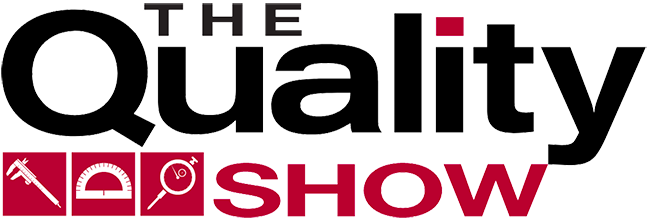2023 Quality Show Agenda
Date/Time
Track Title
Speaker
Location
Sponsor
Tuesday
10/24/2023
10:00 AM - 5:00 PM
10/24/2023
10:00 AM - 5:00 PM
EXHIBIT HALL OPEN
Hall F
Tuesday
10/24/2023
10:30 AM - 11:30 PM
10/24/2023
10:30 AM - 11:30 PM
CMS Education Zone
Ask the Experts
Moderator: John Kane
President, Wyvern Industrial Technology LLC
President, Wyvern Industrial Technology LLC
Theater 2

Tuesday
10/24/2023
10:30 AM - 11:00 AM
10/24/2023
10:30 AM - 11:00 AM
Learning Theater Presentation # 1
Good Quality is Good Business. Building the Business Case for Quality Management
Gerben de Haan
Co-founder and CPO, AlisQI
Co-founder and CPO, AlisQI
Theater 1

Tuesday
10/24/2023
11:00 AM - 11:30 AM
10/24/2023
11:00 AM - 11:30 AM
Learning Theater Presentation # 2
Paperless Shopfloor: A Game-Changer in Manufacturing
Manee Stevenson
Business Process Consultant, Deltek +TIP Technologies
Business Process Consultant, Deltek +TIP Technologies
Theater 1
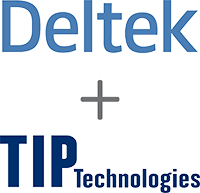
Tuesday
10/24/2023
11:30 AM - 12:00 PM
10/24/2023
11:30 AM - 12:00 PM
Learning Theater Presentation # 3
Transformational Benefits at the Intelligent Edge
Andy Zosel
SVP of Advanced Data Capture and Machine Vision & Imaging, Zebra
SVP of Advanced Data Capture and Machine Vision & Imaging, Zebra
Theater 1

Tuesday
10/24/2023
11:30 AM - 12:30 PM
10/24/2023
11:30 AM - 12:30 PM
Guided Exhibit Hall Tour
SOFTWARE #1
Tour participants will meet on the ‘Quality Show’ carpet at Exhibit Hall entrance and Quality editors will lead them to 3-5 key exhibits and discuss different proudcts and solutions at each stop. See Software #1 Tour Stops
Hall F
Tuesday
10/24/2023
12:00 PM - 12:30 PM
10/24/2023
12:00 PM - 12:30 PM
Learning Theater Presentation # 4
Connected Quality to Improve Profits
David Mihal
National Sales Manager, Metrology Software, Hexagon Manufacturing Intelligence North America
National Sales Manager, Metrology Software, Hexagon Manufacturing Intelligence North America
Theater 1
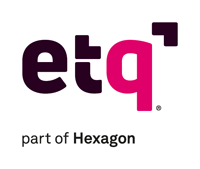
Tuesday
10/24/2023
12:30 PM - 1:00 PM
10/24/2023
12:30 PM - 1:00 PM
Learning Theater Presentation # 5
Where Will Quality Be in 5 Years?
Grace Duffy
President, Management & Performance Systems
President, Management & Performance Systems
Theater 1

Tuesday
10/24/2023
12:30 PM - 2:30 PM
10/24/2023
12:30 PM - 2:30 PM
CMS Education Zone
Metrologist in Training (MIT) Course
Tom Kinnare, Director of Engineering, East Coast Metrology (ECM): A Division of In-Place Machining Company
Keith Bevan, Head of Manufacturing Training, National Physical Laboratory (NPL)
Keith Bevan, Head of Manufacturing Training, National Physical Laboratory (NPL)
Theater 2

Tuesday
10/24/2023
1:00 PM - 1:30 PM
10/24/2023
1:00 PM - 1:30 PM
Learning Theater Presentation # 6
America Makes Efforts in AM Qualification
Brandon Ribic, Ph.D.
Technology Director, America Makes, National Center for Defense Manufacturing and Machining
Technology Director, America Makes, National Center for Defense Manufacturing and Machining
Theater 1

Tuesday
10/24/2023
1:30 PM - 2:00 PM
10/24/2023
1:30 PM - 2:00 PM
Learning Theater Presentation # 7
When Quality & Sustainability Meet
Tariq Masud
Senior Manager, Parsons Corporation
Senior Manager, Parsons Corporation
Theater 1
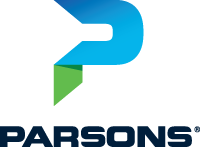
Tuesday
10/24/2023
2:00 PM - 2:30 PM
10/24/2023
2:00 PM - 2:30 PM
Learning Theater Presentation # 8
Total Process Control in Automated Manufacturing
Denis Vasilescu
Industrial Metrologist, Renishaw, Inc.
Industrial Metrologist, Renishaw, Inc.
Theater 1

Tuesday
10/24/2023
2:00 PM - 3:00 PM
10/24/2023
2:00 PM - 3:00 PM
Guided Exhibit Hall Tour
QUALITY 4.0
Tour participants will meet on the ‘Quality Show’ carpet at Exhibit Hall entrance and Quality editors will lead them to 3-5 key exhibits and discuss different proudcts and solutions at each stop. See Quality 4.0 Tour Stops
Hall F
Tuesday
10/24/2023
2:30 PM - 3:00 PM
10/24/2023
2:30 PM - 3:00 PM
Learning Theater Presentation # 9
Digitally Connected 3D Measurements for Data-Driven Decisions
Éric Roberge
VP of Products and Innovation for the Metrology Suite, InnovMetric Software
VP of Products and Innovation for the Metrology Suite, InnovMetric Software
Theater 1

Tuesday
10/24/2023
3:00 PM - 5:00 PM
10/24/2023
3:00 PM - 5:00 PM
Happy Hour Welcome Reception
Catch up with your colleagues and peers at the Quality Show with happy hour drinks and local fare right on the show floor as you continue to tour exhibits, check out the hands on displays, and network. Open to all registered attendees.
Hall F

Tuesday
10/24/2023
5:00 PM
10/24/2023
5:00 PM
EXHIBIT HALL CLOSES
Wednesday
10/25/2023
9:00 AM - 9:10 PM
10/25/2023
9:00 AM - 9:10 PM
Quality Awards Presentation
Darryl Seland
Editorial Director, Quality Magazine
Editorial Director, Quality Magazine
Keynote Theater
Wednesday
10/25/2023
9:10 AM - 10:00 PM
10/25/2023
9:10 AM - 10:00 PM
Keynote Presenation
The Future of Quality: What Lies Ahead?
Travis Jarrett
Quality Manager, TITANS of CNC
Quality Manager, TITANS of CNC
Keynote Theater
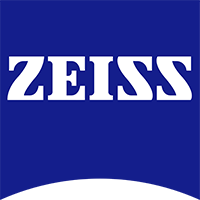
Wednesday
10/25/2023
10:00 AM - 5:00 PM
10/25/2023
10:00 AM - 5:00 PM
EXHIBIT HALL OPEN
Hall F
Wednesday
10/25/2023
10:00 AM - 12:00 PM
10/25/2023
10:00 AM - 12:00 PM
CMS Education Zone
Metrologist in Training (MIT) Course
Tom Kinnare, Director of Engineering, East Coast Metrology (ECM): A Division of In-Place Machining Company
Keith Bevan, Head of Manufacturing Training, National Physical Laboratory (NPL)
Keith Bevan, Head of Manufacturing Training, National Physical Laboratory (NPL)
Theater 2

Wednesday
10/25/2023
10:30 AM - 11:00 AM
10/25/2023
10:30 AM - 11:00 AM
Learning Theater Presentation # 10
Winning Over Skeptical Workers
Saso Krstovski
D.Eng., former Ford Lean Manufacturing Manager, and Six Sigma Master Black Belt
D.Eng., former Ford Lean Manufacturing Manager, and Six Sigma Master Black Belt
Theater 1

Wednesday
10/25/2023
11:00 AM - 12:00 PM
10/25/2023
11:00 AM - 12:00 PM
Speed Networking
The Quality Show is excited to bring a new and fun way to interact with your peers. This memorable stress-free event will introduce you to a wide range of quality manufacturing professionals, so your networking time is optimized for efficiency and impact.
Registration in advance is required (no fee!) Sign up here.
Registration in advance is required (no fee!) Sign up here.
Hall F
Wednesday
10/25/2023
11:00 AM - 12:00 PM
10/25/2023
11:00 AM - 12:00 PM
Learning Theater Presentation # 11
Verifying Your Gages: The Daily Practices Your Team Should Be Performing
Dustin Smith
Metrology & Software Training Lead, Assurance Technologies, Inc.
Metrology & Software Training Lead, Assurance Technologies, Inc.
Theater 1
Presented by


Wednesday
10/25/2023
11:30 AM - 12:30 PM
10/25/2023
11:30 AM - 12:30 PM
Guided Exhibit Hall Tour
SOFTWARE #2
Tour participants will meet on the ‘Quality Show’ carpet at Exhibit Hall entrance and Quality editors will lead them to 3-5 key exhibits and discuss different proudcts and solutions at each stop. See Software #2 Tour Stops
Hall F
Wednesday
10/25/2023
12:00 PM - 12:30 PM
10/25/2023
12:00 PM - 12:30 PM
Learning Theater Presentation # 12
Leveraging Cross-Functional Team CQI Strategies for Expedited Growth: Meet Reed Switch Developments Corp., 2023 Quality Magazine Plant of the Year
Debra Dahlin, President, Reed Switch Developments Corp
Jeff Rosenbaum, Engineering & QA Manager, Reed Switch Developments Corp
Jeff Rosenbaum, Engineering & QA Manager, Reed Switch Developments Corp
Theater 1

Wednesday
10/25/2023
12:30 PM - 1:00 PM
10/25/2023
12:30 PM - 1:00 PM
Learning Theater Presentation # 13
Can’t Cite it Don’t Write it!
John Vandenbemden
Principal, Q-Met-Tech, LLC
Principal, Q-Met-Tech, LLC
Theater 1
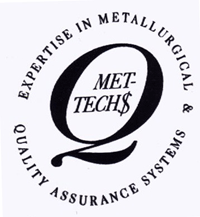
Wednesday
10/25/2023
1:00 PM - 1:30 PM
10/25/2023
1:00 PM - 1:30 PM
Learning Theater Presentation # 14
The Top 4 Quality Inspection Nightmares and What You Can Do About Them
Rebecca Keller
Sales Manager, DISCUS Software Company
Sales Manager, DISCUS Software Company
Theater 1

Wednesday
10/25/2023
1:00 PM - 2:00 PM
10/25/2023
1:00 PM - 2:00 PM
CMS Education Zone
Ask the Experts
Moderator: John Kane
President, Wyvern Industrial Technology LLC
President, Wyvern Industrial Technology LLC
Theater 2

Wednesday
10/25/2023
1:30 PM - 2:00 PM
10/25/2023
1:30 PM - 2:00 PM
Learning Theater Presentation # 15
Low Cost Technology Applications in Lean
Eric Hayler
Principal, Hayler Group
Principal, Hayler Group
Theater 1

Wednesday
10/25/2023
2:00 PM - 2:30 PM
10/25/2023
2:00 PM - 2:30 PM
Learning Theater Presentation # 16
Accelerating Your Quality Assurance Validation Process
Carrie Pfeifer
Applications Engineer, ZEISS Industrial Quality Solutions
Applications Engineer, ZEISS Industrial Quality Solutions
Theater 1

Wednesday
10/25/2023
2:00 PM - 3:00 PM
10/25/2023
2:00 PM - 3:00 PM
Guided Exhibit Hall Tour
AUTOMATION
Tour participants will meet on the ‘Quality Show’ carpet at Exhibit Hall entrance and Quality editors will lead them to 3-5 key exhibits and discuss different proudcts and solutions at each stop. See Automation Tour Stops
Hall F
Wednesday
10/25/2023
2:30 PM - 3:00 PM
10/25/2023
2:30 PM - 3:00 PM
Learning Theater Presentation # 17
Systems Support the Building Blocks of Organizational Culture
Grace Duffy
President, Management & Performance Systems
President, Management & Performance Systems
Theater 1

Wednesday
10/25/2023
2:30 PM - 3:30 PM
10/25/2023
2:30 PM - 3:30 PM
CMS Education Zone
Choosing the Right Metrology Tool
Matt Ilardo
Engineer, Brookhaven National Laboratory (BNL)
Engineer, Brookhaven National Laboratory (BNL)
Theater 2

Wednesday
10/25/2023
3:00 PM - 3:30 PM
10/25/2023
3:00 PM - 3:30 PM
Learning Theater Presentation # 18
Calibration & Traceability - Myths & Misnomers
Heather Wade
Immediate Past Chair, ASQ Measurement Quality Division
Immediate Past Chair, ASQ Measurement Quality Division
Theater 1

Wednesday
10/25/2023
3:30 PM - 4:00 PM
10/25/2023
3:30 PM - 4:00 PM
Learning Theater Presentation # 19
How to Determine Equipment Accuracy for Test Methods
Heather Wade
Immediate Past Chair, ASQ Measurement Quality Division
Immediate Past Chair, ASQ Measurement Quality Division
Theater 1

Wednesday
10/25/2023
4:00 PM - 4:30 PM
10/25/2023
4:00 PM - 4:30 PM
Learning Theater Presentation # 20
Larger than Additive Manufacturing
Carl Dekker
President, Met-L-Flo, Inc.
President, Met-L-Flo, Inc.
Theater 1

Wednesday
10/25/2023
4:00 PM - 5:00 PM
10/25/2023
4:00 PM - 5:00 PM
CMS Education Zone
The Hows, Whens, and Whys of Adding an Additional Axis to your Coordinate Measuring System
John Kane
President, Wyvern Industrial Technology LLC
President, Wyvern Industrial Technology LLC
Theater 2

Wednesday
10/25/2023
4:30 PM - 5:00 PM
10/25/2023
4:30 PM - 5:00 PM
Learning Theater Presentation # 21
Understanding ISO's Standard for Structured-light Systems
Edward Morse
Professor, UNC Charlotte
Professor, UNC Charlotte
Theater 1

Wednesday
10/24/2023
5:00 PM
10/24/2023
5:00 PM
EXHIBIT HALL CLOSES
Hall F
Wednesday
10/24/2023
5:00 PM
10/24/2023
5:00 PM

Pub Night Networking Reception
Meet up at “the pub” after the exhibit hall closes for food, drinks, music and games with attendees and exhibitors from the Quality Show AND The ASSEMBLY Show in a fun and relaxed environment. It’ll be double the networking and comradery so, send your entire manufacturing team this year! Open to all registered attendees.
Ballroom
Thursday
10/26/2023
9:00 AM - 2:00 PM
10/26/2023
9:00 AM - 2:00 PM
EXHIBIT HALL OPEN
Hall F
Thursday
10/26/2023
9:00 AM - 10:00 AM
10/26/2023
9:00 AM - 10:00 AM
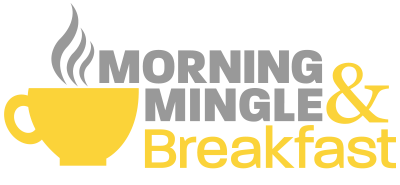
Morning Mingle & Breakfast
Join us on the final morning of The Quality Show for complimentary continental breakfast and coffee right on the exhibit floor. This crowd favorite provides another opportunity to network and solidify business connections.
Hall F, Quality Blvd
Thursday
10/26/2023
9:00 AM - 11:00 AM
10/26/2023
9:00 AM - 11:00 AM
CMS Education Zone
Metrologist in Training Exam (option 1)
Learn more about taking the practice metrology test
Theater 2

Thursday
10/26/2023
10:00 AM - 10:30 AM
10/26/2023
10:00 AM - 10:30 AM
Learning Theater Presentation # 21
Machine Learning in Manufacturing: Quality 4.0 and the Zero Defects Vision
Carlos Escobar
Research Scientist, Tecnológico de Monterrey
Research Scientist, Tecnológico de Monterrey
Theater 1
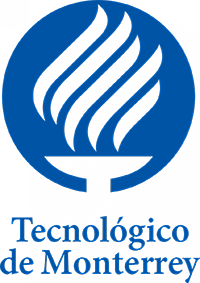
Thursday
10/26/2023
10:30 AM - 11:30 AM
10/26/2023
10:30 AM - 11:30 AM
Learning Theater Presentation # 22
SPC & Wireless Gages: Here to There guide to Preparing for SPC Capable Gages
Dustin Smith
Metrology & Software Training Lead, Assurance Technologies, Inc.
Metrology & Software Training Lead, Assurance Technologies, Inc.
Theater 1
Presented by


Thursday
10/26/2023
11:30 AM - 12:00 PM
10/26/2023
11:30 AM - 12:00 PM
Learning Theater Presentation # 23
Inspection Versus Auditing
John Vandenbemden
Principal Q-Met-Tech, LLC
Principal Q-Met-Tech, LLC
Theater 1

Thursday
10/26/2023
11:30 AM - 1:00 PM
10/26/2023
11:30 AM - 1:00 PM
CMS Education Zone
Metrologist in Training Exam (option 2)
Learn more about taking the practice metrology test
Theater 2

Thursday
10/26/2023
2:00 PM
10/26/2023
2:00 PM
EXHIBIT HALL CLOSES
Hall F
✕
Quality Awards

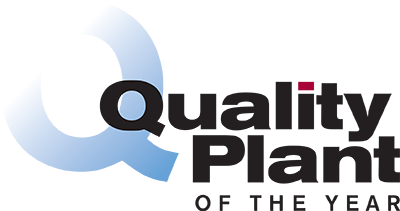
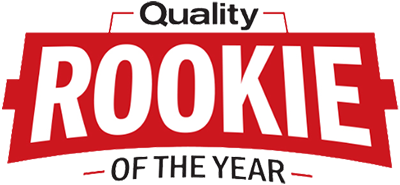
The Quality Professional of the Year recognizes an individual who, during the course of his/her career, has made outstanding contributions to the quality profession. The Quality Plant of the Year award recognizes plants that have applied world-class quality technology, equipment, services and techniques that improve quality standards. In our latest award, Rookie of the Year, Quality recognizes an individual with one to five years of experience in the industry who has contributed to the quality profession even in this short amount of time.
✕
The Future of Quality: What Lies Ahead?
From hiring, to technology, to the economy…Travis discusses the concerns, challenges, and opportunities that face an ever changing manufacturing environment. Coming from his unique position at TITANS of CNC Travis shares his insights into what can make quality the foundation of your company’s success.
Keynote Speaker
✕
When Quality & Sustainability Meet
Sustainability is increasingly becoming more important to consumers thereby making sustainable manufacturing the new priority for industrial manufacturers. Quality and Sustainability are two critical aspects of business operations that are closely intertwined and can complement each other when integrated into an organization’s operations.
The fundamental shift is in moving from pure profit maximization to a new definition of growth—one that gives due weight to the health of society and the planet. This presentation aims to show how organizations can integrate sustainability with their existing quality systems and achieve increased efficiency and cost savings in the joint initiative.
Speaker
✕
Low Cost Technology Applications in Lean
Lean manufacturing includes the concept of kaizen. Innovation solutions are usually high tech, high cost, large scale changes that are often slow to implement. Kaizen solutions are low cost, small changes that are easy to implement. They are traditionally low tech, however with increasing access to low cost technology, the range of kaizen solutions has broadened. This session highlights low cost tech applications in Lean improvements.
Speaker
✕
The Top 4 Quality Inspection Nightmares and What You Can Do About Them
The nightmares shared in this presentation and the associated prescriptive solutions come from our many years of experience working with quality engineers in manufacturing organizations. Pursuing software solutions to these and other challenges is our purpose as an organization.
Here are the 4 Nightmares addressed in this presentation:
- Nightmare #1: FAI Reports are Time Consuming
- Nightmare #2: Scrap and Rejects are Reducing Profitability
- Nightmare #3: Being Unprepared for Emerging 3D Model Requirements
- Nightmare #4: Each Customer has a Unique Inspection Form
Speaker
✕
Good Quality is Good Business. Building the Business Case for Quality Management
Many of us in the quality domain struggle to financially quantify our efforts and successes. Recent research shows that only a minority of the manufacturers deploy a Total Cost of Quality model to systematically quantify the financial impact of quality management. In this paper, we present a simple but effective approach to quantify the quality business function. With this methodology quality professionals can:
- Assess where their spend on quality goes
- Calculate the ROI of any quality related investment
- Benchmark their quality business function with their peers
Speaker
✕
Total Process Control in Automated Manufacturing
Automation is a strategy for scaling the productivity of talented, but finite, labor resource. Automation empowers manufacturing to produce quality product at large scale, but also produce scrap at large scale. Renishaw presents methods and tools from its own manufacturing facilities on how to control and automate every operation in the process, from material handling to setup to metal cutting to final inspection. The quality of a finished good is verified automatically after the quality has been built into the part at every operation automatically. Learn how to achieve extraordinary results with ordinary resource from your partner in process control.
Speaker
✕
Digitally Connected 3D Measurements for Data-Driven Decisions
How can you increase profits and revolutionize your engineering and manufacturing processes with 3D measurements? Join this presentation to explore the future of 3D metrology. Discover the transformative potential of a universal 3D metrology platform, streamlining workflows and boosting team performance. Learn how data management on a central server drives unprecedented efficiency gains through seamless access, sharing, and collaboration. Uncover the benefits of digital interconnections, optimizing decision-making and productivity. Real-world testimonials showcase how you can empower your organization for success in the digital era. Join us to have a better grasp of the true potential of your 3D measurement data.
Speaker
✕
Winning Over Skeptical Workers
This session will focus on a strategic, democratic approach to leadership called the Circle of Influence. The Circle of Influence consists of five components: acknowledge, listen, agree, rethink and effectively close. It emphasizes compassion, accessibility, and inclusion. We’ll examine each of these charismatic leadership traits in depth and show how they work together to transform teams—and entire organizations.
Speaker
✕
Systems Support the Building Blocks of Organizational Culture
Building and improving a culture of organizational excellence requires a systematic approach. A robust model is required to achieve and sustain performance goals. Organizations must assess the maturity of their processes and organizational readiness to implement such a methodology before embarking on the journey. An organization should be at least at level 3, Defined Systems Approach, of the Maturity Model to reap the rewards of a culture of excellence. Management Systems require not only integrated processes, but a human-centered approach that creates an engaging workplace. Industrial Engineers are a valuable resource to align measurable processes to strategic goals that establish and sustain an effective organizational culture.
Speaker
✕
Where Will Quality Be in 5 Years?
There a several different ways to approach the question of where the quality department will be in 5 years. We must not look at the future of our profession without including the effects of technology on our workplace. With the groundswell of automation and autonomics, our required talents are changing as fast as everything else. Some questions to ask are:
- Should there be a separate quality department? Or will the quality function be integrated back into the financial or IT group, with just different focus?
- How will the department or function be measured? Chances are, quality professionals ors in general will be required to have a more strategic and systems view of their assessments and reporting.
- What competencies will be required for members of the quality profession?
- What is the balance of human interaction and automated monitoring/reporting systems? How will this affect us as technology expands across the organization?
Speaker
✕
Connected Quality to Improve Profits
Quality spans the entire manufacturing product life cycle. However, different systems manage different portions of the process. Hexagon has built an integrated connection bridging the data gap between product quality control (Q-DAS) and quality management (ETQ Reliance) to ensure data is shared between systems and insights gained for timely action. In this Learning Session, we’ll explore
- The value of integrating Quality Control and Quality Management data and processes
- How Wabtec Inc. achieves the benefits of this integration
- What happens when Q-DAS SPC software identifies an out of tolerance condition and kicks off a nonconformance process in ETQ Reliance
Speaker
✕
Choosing the Right Metrology Tool
In this presentation, Matt Ilardo of the Brookhaven National Laboratory (BNL) and the Coordinate Metrology Society will help attendees understand how to choose the right metrology tool for specific jobs. What are the factors to consider? What are the risks? How can these choices affect measurement results? Matt will present real-world examples and take questions from the audience.
Speaker
✕
America Makes Efforts in AM Qualification
Driven by the National Center for Defense Manufacturing and Machining (NCDMM), America Makes is a Department of Defense Manufacturing Innovation Institute focused on additive manufacturing (AM) technologies. Since its inception, America Makes has leveraged a national collaborative ecosystem to advance the readiness level of AM technologies and invigorate the knowledge base, skills, and training available for the domestic AM supply chain. Our strategy is the product of collaboration with our membership, which is comprised of representation from all tiers of the domestic AM supply chain. An overview of prior, current, and future America Makes research and development addressing AM material and process qualification will be summarized.
Speaker
✕
Verifying Your Gages: The Daily Practices Your Team Should Be Performing
Learn the tools to give your team the assurance that the equipment they use will be maintained, well performing, and most importantly, in tolerance. This seminar will discuss the differences between calibration versus verification of equipment and the maintenance of many common gages such as Micrometers, Calipers, Height Gages and more. Find out how verification schedules and daily checks of your gages per day, or even per shift, can extend your gage life and catch underperforming gages before incorrect data is obtained.
Speaker
✕
Leveraging Cross-Functional Team CQI Strategies for Expedited Growth: Meet Reed Switch Developments Corp., 2023 Quality Magazine Plant of the Year
Introducing Quality Magazine’s 2023 Plant of the Year, the 100% U.S. based and woman-owned Reed Switch Developments Corp., a designer and manufacturer of standard and custom magnetic reed switch sensors and actuators for a variety of industries. Learn more about their rich company history, award-winning formula for rapid growth, successful LEAN manufacturing techniques, mindful in-house talent development and retention strategies, strategic industry expert outsourcing for improved ROI and cost savings, sales and marketing strategies, and other successful cross-functional team-based Continuous Quality Improvement (CQI) techniques. Learn how your company can boost its own growth, efficiency, cost-savings, staff retention, and CQI metrics.
Speaker
✕
Inspection Versus Auditing
Many people view Inspection and Auditing as being the same. Even though there are overlaps of these tools they are not the same. This presentation focuses on understanding each of the management tools and their differences. The attendee will provided an understanding on when each term should be used.
Speaker
✕
Can’t Cite it Don’t Write it!
The output of audits are audit findings. The presentation is focused on providing an understanding on the various types of audit findings. Since nonconformities is what users’ are focused on, a discussion of how to create valued added findings is presented with examples.
Speaker
✕
Transformational Benefits at the Intelligent Edge
Zebra’s manufacturing technology solutions enable manufacturers to see more, know more, and do more to become increasingly agile, optimize plant floor performance, and embrace market changes. In his presentation, Andy Zosel will share how Zebra is internally managing (and can help other manufacturers manage) the “triple squeeze” of labor shortages, diminishing predictability, and rising quality expectations. His talk will highlight recent innovations in manufacturing technology use cases, including mobile robotics, RFID-enabled visibility, and AI machine vision.
Speaker
✕
Paperless Shopfloor: A Game-Changer in Manufacturing
The concept of a paperless shop floor involves the digital transformation strategy of eliminating paper-based documents and manual data entry from the manufacturing process. This approach offers improvements in quality, efficiency, and flexibility within manufacturing systems, while also lowering environmental impact and operational expenses. This presentation will delve into the advantages of adopting a paperless shop floor. Additionally, it will explore how this strategy supports manufacturers in accomplishing their objectives of efficiently delivering intricate products with speed and cost-effectiveness beyond previous capabilities.
Speaker
✕
SPC & Wireless Gages: Here to There guide to Preparing for SPC Capable Gages
As SPC and data collection becomes more commonly desired and required, how do you future proof your shop to get to fully wireless data collection across the shop floor and labs? In this session gain the knowledge and steps you can be taking now to set your team up for success when the time comes to launch a facility wide data collection procedure. From finding the champion on your team to pilot the program, to items to inquire about on your next micrometer or caliper order, learn how both time and money can be saved.
Speaker
✕
Accelerating Your Quality Assurance Validation Process
Validation is a required component of medical device quality assurance and is essential for complying with FDA requirements. But medical device manufacturers new to CMMs or Microscopes aren’t always sure how to achieve FDA compliance. How can you speed up the integration time of your new quality assurance system without creating production bottlenecks? ZEISS Industrial Quality Solutions has established guidelines and validation methods from extensive research to comply with FDA standards, including 21 CFR Part 11 and 21 CFR 820.
Speaker
✕
Machine Learning in Manufacturing: Quality 4.0 and the Zero Defects Vision
Over four decades ago, the concept of zero-defects manufacturing was initially introduced by Phillip Crosby. Because of the technological limitations of the time, the zero-defects concept remained mainly a managerial tool that acknowledged the importance of quality and motivated employees to do their best to reach this goal. Today, the introduction of artificial intelligence into the manufacturing processes vastly improves upon this zero-defects vision from a technological perspective. In this talk, I introduce a new concept, learning quality control (LQC), which is the evolution of statistical quality control (SQC). This new approach allows us to solve a whole new range of engineering intractable problems.
Speaker
✕
Larger than Additive Manufacturing
When you need parts larger than Additive Manufacturing machine envelops allow options can be limited. Some systems allow for larger part foot print but this may be limited by the deposition resolution and surface finish. Additive enabled solutions may be opportunities to fill these needs but limitations still exist. This presentation will explain how to embrace additive as an enabler to obtaining larger parts for preproduction, specialty applications, and limited production needs.
Speaker
✕
Understanding ISO's Standard for Structured-light Systems
Speaker
✕
Ask the Experts
This question-and-answer session allows attendees to ask compelling technical questions. The expert panel is comprised of experts in the fields of portable metrology equipment (PCMMs and laser trackers).
Speaker
✕
Ask the Experts
This question-and-answer session allows attendees to ask compelling technical questions. The expert panel is comprised of experts in the fields of CMM equipment.
Speaker
✕
How to Determine Equipment Accuracy for Test Methods
Published test methods may give guidance as to the type of test instrument needed to perform a test, but don’t always clearly specify the accuracy requirements of test instrument to be used for that test. How do we know the test instrument accuracy that is appropriate to use for a test? Learn how to interpret test method specifications and determine the most appropriate test instrument, and subsequently the calibration needs of the test instrument. Learning Session “Demystify Accreditation Scopes” builds on this topic.
Speaker
✕
Calibration & Traceability - Myths & Misnomers
“NIST-Traceability”, adjustment is the same as calibration, a calibration is good forever, “ISO 17025-certification”, there is one appropriate calibration method for any type of measuring equipment. These are all myths and misnomers. Understanding and use of correct terminology ease communication and can reduce mistakes and misunderstandings. Ultimately, using correct words and terms helps organizations reduce risk. This is of value to those in manufacturing, testing and calibrations laboratories, auditors, customers, and consumers. Learn the proper definitions and context to avoid miscommunications that cost time and money.
Speaker
✕
Metrologist in Training (MIT) Course
East Coast Metrology (ECM): A Division of In-Place Machining Company will be hosting a presentation introduction and overview to the MIT assessment exam and pathway to CMS metrology certification. Students taking the MIT assessment exam must sit in on the course in order to take the exam for free. The course reviews the following five broad areas of knowledge considered in the test:
- Interpreting engineering documents
- Measuring equipment and environment effects
- Planning measurements and documentation
- Measurement operations
- Ethics and analysis
This MIT Course will be offered on Tuesday and Wednedsay.
Speaker
✕
Metrologist in Training (MIT) Course
East Coast Metrology (ECM): A Division of In-Place Machining Company will be hosting a presentation introduction and overview to the MIT assessment exam and pathway to CMS metrology certification. Students taking the MIT assessment exam must sit in on the course in order to take the exam for free. The course reviews the following five broad areas of knowledge considered in the test:
- Interpreting engineering documents
- Measuring equipment and environment effects
- Planning measurements and documentation
- Measurement operations
- Ethics and analysis
This MIT Course will be offered on Tuesday and Wednedsay.
Speaker
✕
Metrologist in Training Exam
Proctored by East Coast Metrology (ECM): A Division of In-Place Machining Company and the Coordinate Metrology Society. The MIT exam is a short, low-risk practice test. The test taker will experience the same online test environment and encounter questions distributed across the same body of knowledge at the actual CMS Level-One certification exam. The test score is broken down by category within the body of knowledge. Results are presented as an overall score, and a score for each of the five broad areas of knowledge presented in the training course. A high score on the MIT exam is an indicator that the test taker is on the right path to becoming an expert dimensional metrologist.
NOTE: The MIT exam is NOT a pre-requisite for CMS certification.
